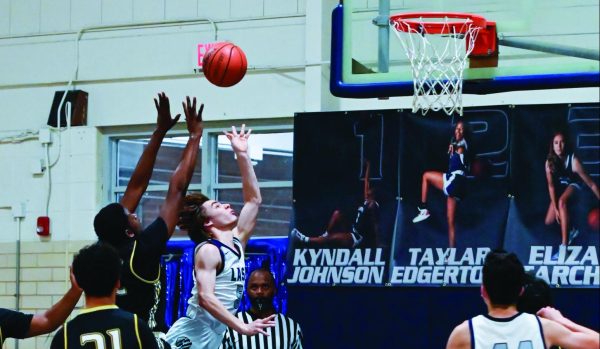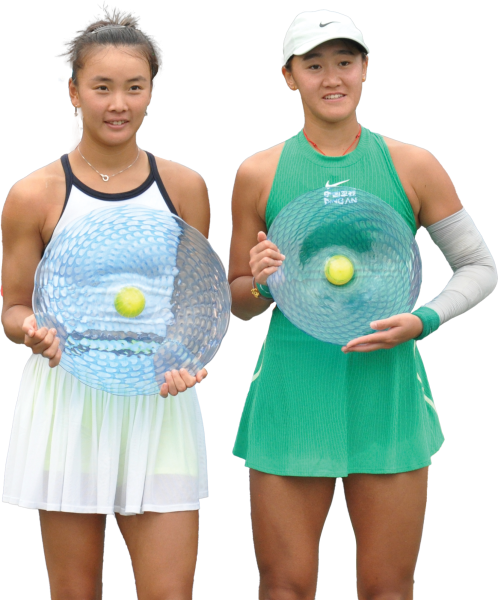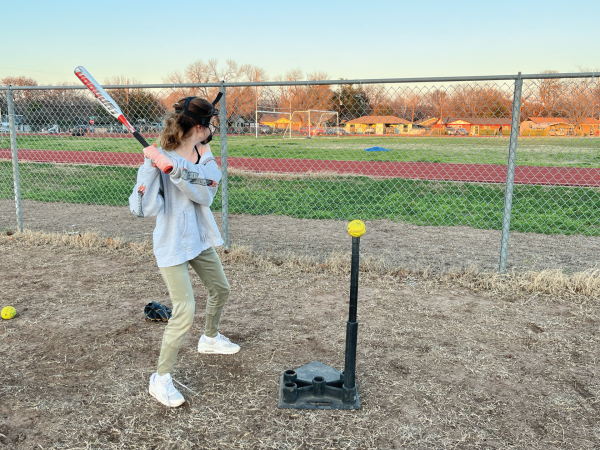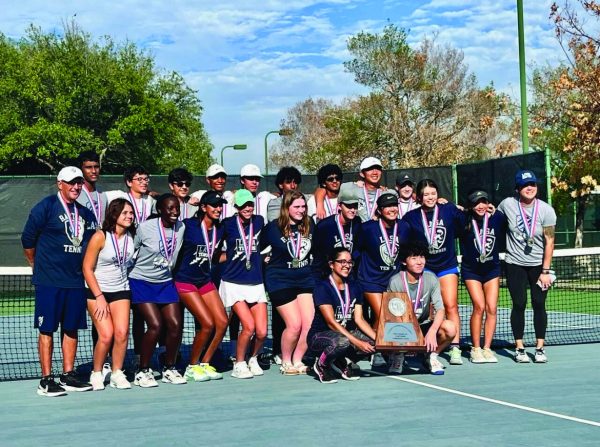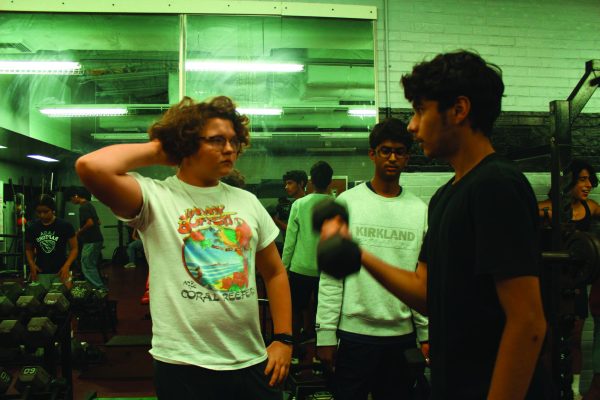Ain’t Nothin’ Gonna Break My Stride: Looking Back on Track and Field’s Season
May 5, 2022
LASA track takes place during the spring season after a full season of cross country. It’s mainly an individual sport, although the team sometimes competes as a group in UIL competitions. With about 90 members on the team, different coaches are needed to maintain the various events and specialties present. There are a total of six track coaches. German teacher Christopher Parks specializes in coaching the hurdler, long, and triple jump events.
“I told Principal Crescenzi that I’d love to do anything to be involved with any extracurriculars,” Parks said. “I was in swim team and on track in high school, and so I just wanted to be a part of that again.”
There are many possible motivations for wanting to join track, from needing P.E. credits to bettering one’s physical fitness. This is sophomore Cosmo Courtois’ first year in track. Courtois joined to try and better his running abilities so he could excel at Ultimate, the other sport he participates in.
“I wanted to join LASA track because I had been playing ultimate frisbee, which is my other main sport,” Courtois said, “And I felt like I wanted another sport that would first of all, give me my PE credit. And second of all, it would help me practice for ultimate frisbee in the running department.”
There are a wide range of different categories of track events at LASA, which includes sprints, hurdles, relays, middle and long distance, jumps, and many more. Different runners have different specialties, so when picking an event, they try to coordinate it with what they excel in, according to junior Kepler Huntress, who has been doing track since middle school
“I mainly run the 400 and 800, so just quarter mile, half mile,” Huntress said, “And then I also run on the four by four relay, which is also called the six minute relay sometimes. I’m a mid distance runner, and the way I’ve been training, it’s moving me up to the mile.”
As athletes grow and change, so can their interests and abilities. Courtois runs the 300 hurdles, but has recently been interested in running the steeplechase, an event with hurdles with water added after each jump, as well as having big logs to work as hurdles in some areas.
“I was thinking of doing steeplechase, which they don’t really offer here at LASA,” Courtois said. “It’s a very specialized event. Coach Parks was recommending that because I do hurdles, that steeplechase would be another good option.”
This track season, LASA has frequently earned spots on the podium, especially the girls team. According to Parks, success can depend on how intense or big the track meet is.
“It depends a little on the track meet,” Parks said. “When we go to a big track meet like the AISD Invitational, big 6A schools like Bowie tend to dominate. But even at the most difficult of meets we’ve been to, we’ve still had a lot of great successes with some of our relays getting medals.”
According to Parks, coaches always have to remember how their attitude affects the students. He always tries to keep an optimistic coaching strategy and attitude to help kids feel positive.
“I think we all influence each other so much,” Parks said. “If a student comes into my class with a gloomy attitude, it can easily affect me. Positivity has an immediate, instantaneous effect on how that practice is going to go. I’ve had those weak moments where maybe we have a deadline to submit a bunch of entries. If you approach the group with this carrying visually—showing that you’re carrying this stress—it has a bad influence. ”
When coaching his team, Parks said he gets great pride when seeing them succeed. But for Parks, he is more proud that there is room for everyone in their team. Students can be looking for a chill environment to work out and make friends, or they could be very competitive, but he says everyone will always be part of the group.
“I think just, of course, the trophy that we already won so far this season, and the trophies we got last year, that’s wonderful and success and medals are great, and I’m particularly proud of individuals who make those achievements,” Parks said. “But really, for me personally, as a human being, I’m more proud of just the fact that we’ve maintained on both teams the ability to let really intense competitive athletes have a chance to shine and represent our school in a competitive way, but still keep a team culture where everybody feels welcome.”



